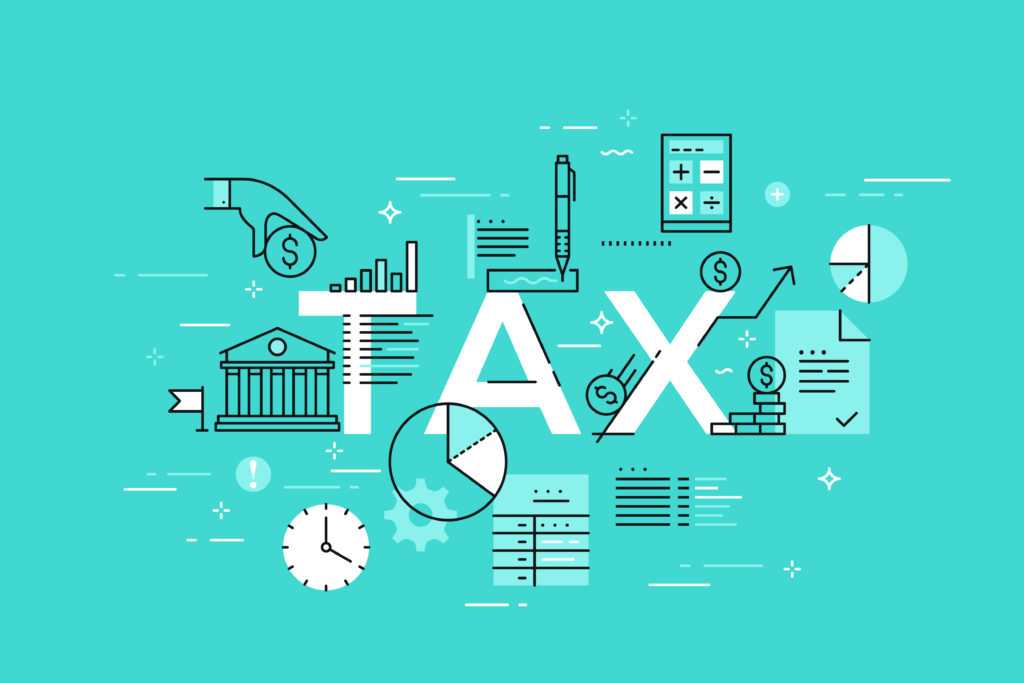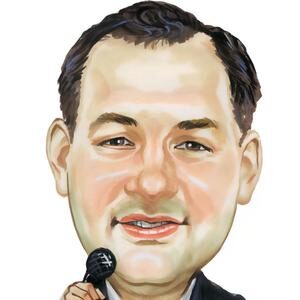Coronavirus (COVID-19) Tax Information Summary

Coronavirus Tax Information
Please note: clients will need to work extensively with their payroll tax service provider, and their Human Resource professional as this all gets complex. I assume information of how to compute and input amounts on the related forms will be provided in detail in the coming weeks. Congress is working on another bill, today, Monday, March 23rd, and we’ll provide more information on that, later.
Families First Coronavirus Response Act. The President has signed the Families First Coronavirus Act (HR 6201, the “Act”) intended to ease the economic consequences stemming from the novel coronavirus disease (COVID-19) outbreak by providing family and medical leave, and sick leave, to employees and providing tax credits to employers and self-employed providing leave. The Act also affects employer-sponsored health plans. Here are details:
- Family and medical leave. The Act includes the Emergency Family and Medical Leave Expansion Act (EFMLEA) (Division C of the Act), which requires employers with fewer than 500 employees to provide both paid and unpaid public health emergency leave to certain employees through December 31, 2020. The emergency leave generally is available when an employee who has been employed for at least 30 days is unable to work or telework due to a need for leave to care for a son or daughter under age 18 because a school or place of care has been closed, or a childcare provider is unavailable, due to an emergency with respect to COVID-19 that is declared by a federal, state, or local authority. The first 10 days of leave may be unpaid and then paid leave is required, calculated based on an amount not less than two-thirds of an employee’s regular rate of pay and the number of hours the employee would otherwise be normally scheduled to work, not to exceed $200 per day and $10,000 in the aggregate. Certain exemptions and special rules apply, and a tax credit may be available (see below).
- Emergency paid sick time. Under the Emergency Paid Sick Leave Act (EPSLA) (Division E of the Act), private employers with fewer than 500 employees, and public employers of any size, must provide 80 hours of paid sick time to full-time employees who are unable to work (or telework) for specified virus-related reasons. Part-time employees are entitled to sick time based on their average hours worked over a 2-week period. This amount is immediately available regardless of the employee’s length of employment. The maximum amounts payable vary based on the reason for absence. Employees who are (1) subject to a quarantine or isolation order, (2) advised by a health provider to self-quarantine, or (3) experiencing symptoms and seeking diagnosis, must be compensated at their regular rate, up to a maximum of $511 per day ($5,110 total). Employees caring for an individual described in category (1), (2), or (3), caring for a son or daughter whose school is closed or child care provider is unavailable, or experiencing a “substantially similar condition” specified by the government must receive two-thirds of their regular rate, up to a maximum of $200 per day ($2,000 total). Employers cannot require employees to find a replacement worker or use other sick leave before this sick time. Employers may exclude health care providers and emergency responders, and the DOL can issue regulations exempting businesses with fewer than 50 employees. The sick leave mandate takes effect not later than 15 days after March 18, 2020 (the date of the Act’s enactment) and expires December 31, 2020.
- Employer tax credits. The Act provides tax credits to employers to cover wages paid to employees while they are taking time off under the EPSLA and EMFLEA. (Act Sec. 7001; Act Sec. 7003) The credits have three components:
1.a. The EPSLA credit for each employee is equal to the lesser of the amount of his leave pay or either (1) $511 per day while the employee is receiving paid sick leave to care for themselves, or (2) $200 if the sick leave is to care for a family member or child whose school is closed. An additional limit applies to the number of days per employee: the excess of 10 days over the aggregate number of days taken into account for all preceding calendar quarters. (Act Sec. 7001(b))
1.b. The EMFLEA credit for each employee is the amount of his leave pay limited to $200 per day with a maximum of $10,000. (Act Sec. 7003(b)(1))
- The amount of the EPSLA and EMFLEA credits are increased by the portion of the employer’s “qualified health plan expenses” that are properly allocable to qualified sick leave wages or qualified family and medical leave wages. Qualified health plan expenses means amounts paid or incurred by the employer to provide and maintain a group health plan (as defined inCode Sec. 5000(b)(1)), but only to the extent that such amounts are excluded from the gross income of employees by reason ofCode Sec. 106(a). (Act Sec. 7001(d); Act Sec. 7003(d))
- 3. In addition, the credits allowed to employers for wages paid under the EPSLA and EFMFLEA are increased by the amount of the tax imposed by Code Sec. 3111(b)(the 1.45% hospital insurance portion of FICA) on qualified sick leave wages, or qualified family leave wages, for which credit is allowed under Act Sec. 7001 or Act Sec. 7003. (Act Sec. 7005(b))
The credits are refundable to the extent they exceed the employer’s payroll tax. (Act Sec. 7001(b)(4); Act Sec. 7003(b)(3))
Employers don’t receive the credit if they’re also receiving the credit for paid family and medical leave in Code Sec. 45S. (Act Sec. 7001(e); Act Sec. 7003(e))
The EPSLA and EMFLEA credits may also be taken against the employer’s railroad retirement tax. (Act Sec. 7001(a); Act Sec. 7003(a))
These rules apply only to wages paid with respect to the period beginning on a date selected by the Secretary of the Treasury which is during the 15-day period beginning on the date of the enactment of the Act (March 18, 2020) and ending on December 31, 2020. (Act Sec. 7001(g); Act Sec. 7003(g))
- Comparable credits for self-employed. The Act also provides for similar refundable credits against the self-employment tax. It covers 100% of a self-employed individual’s sick-leave equivalent amount, or 67% of the individual’s sick-leave equivalent amount if they are taking care of a sick family member or taking care of a child following the child’s school closing for up to 10 days. The sick-leave equivalent amount is the lesser of average daily self-employment income or either (1) $511/day to care for the self-employed individual or (2) $200/day to care for a sick family member or child following a school closing, paid under the EPSLA. (Act Sec. 7002)
Self-employed individuals can also receive a credit for as many as 50 days multiplied by the lesser of $200 or 67% of their average self-employment income paid under the EMFLEA. (Act Sec. 7004)
These rules apply only to days occurring during the period beginning on a date selected by the Secretary of the Treasury, which is during the 15-day period beginning on the date of the enactment of this Act (March 18, 2020) and ending on December 31, 2020. (Act Sec. 7002 and Act Sec. 7004)
- Employer FICA exclusion. Wages paid under the EPSLA and EFMFLEA are not considered wages underCode Sec. 3111(a) (employer tax – old age, survivors and disability insurance portion of FICA; 6.2%) or under Code Sec. 3221(a) (employer’s railroad retirement tax). (Act Sec. 7005(a))
- IRS central website. The IRS website has acoronavirus webpage focused on steps to help taxpayers, businesses and others affected by the coronavirus.
- Supreme Court. The Supreme Court is postponing the oral arguments currently scheduled for the March session (March 23-25 and March 30-April 1). The Court will examine the options for rescheduling those cases in due course considering the developing circumstances. See thepress release.
Tax Court. The Tax Court has canceled March and April 2020 sessions. See the March 11 and March 13 press releases.
© 2020 Thomson Reuters/Tax & Accounting. All Rights Reserved.
Episode 22: Joe Manchin Blocks The Build Back Better Bill Again
In this episode we cover, how Joe Manchin blocks The Build Back Better Bill again, Hungary wants to be left alone, more proposed Low Income Housing Credits, and the 3.8% tax expansion proposal is criticized by the real estate industry. Tax Update with Ron · Episode 22, Joe Manchin Blocks The Build Back Better Bill…
Exciting American Dreams Show News, The First Book!
I have some exciting American Dreams Show news. The host, Alan Olsen has written the first book based on the AD interviews! Other books have cited one or more of the interviews, but this one goes into far more details. Below is a letter from author himself describing the book… From Alan… Dear Friend, I…
Episode 22, Joe Manchin Blocks The Build Back Better Bill Again
In this episode we cover, how Joe Manchin blocks …
Episode 21: IRS Budget On Steroids!
In this episode we cover The New Retirement Bill, the Higher IRS Budget Proposal, the attempt to take away the “John Edwards” rule for S Corporations and other entities, Truckers and AB5. Tax Update with Ron · Episode 21 The IRS is Getting a Funding Increase Transcript: Hello and welcome. This is Ron…




